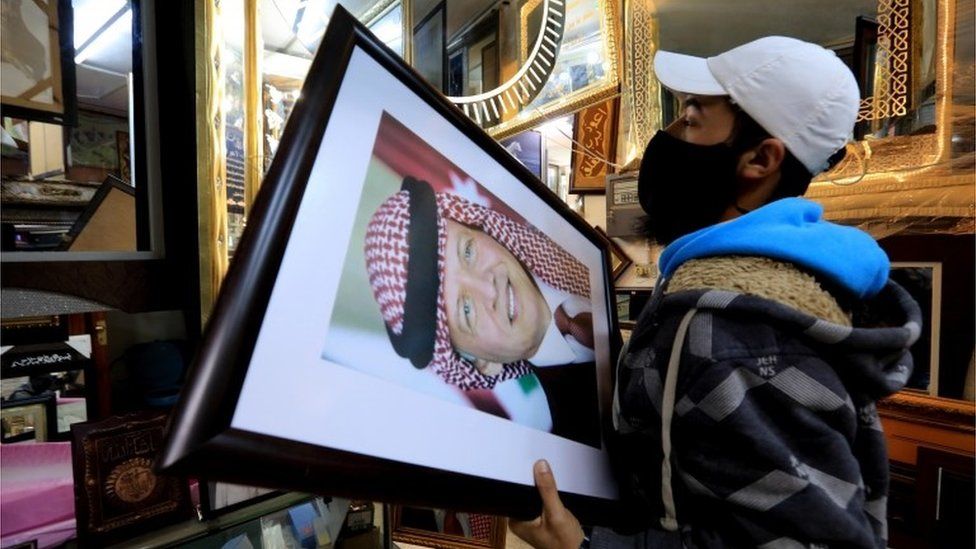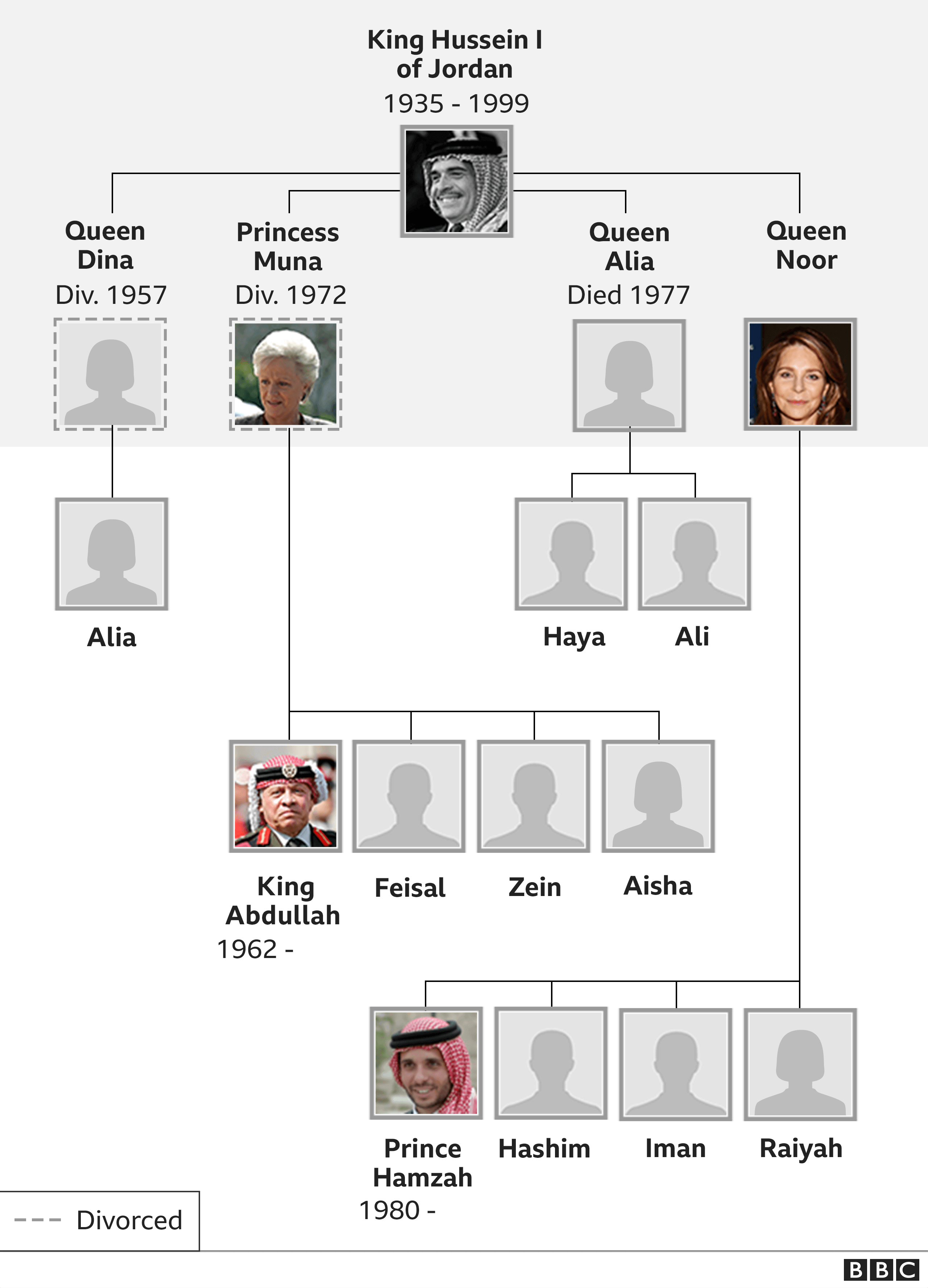Jordan crisis: How Prince Hamzah and Saudi Arabia fit in
.jpg)
2021-04-08 11:35:25
DRAW:
By Frank Gardner - BBC
Saudi officials have categorically denied suggestions their country had any role in the alleged coup attempt in Jordan.
On Saturday Jordan's popular former Crown Prince Hamzah was placed under de facto house arrest and accused of undermining national security after attending tribal meetings where King Abdullah, his half-brother, was openly criticised. Prince Hamzah then released to the BBC two videos, calling his country's government corrupt and incompetent, and saying that people were afraid to speak out for fear of harassment by the security forces.
The crisis has since been de-escalated after mediation by the king's uncle, but speculation is rife as to Saudi Arabia's role.
Saudi Foreign Minister Prince Faisal bin Farhan flew to the Jordanian capital Amman with a delegation in order, say Saudi officials, to "express complete solidarity with Jordan's King Abdullah and his government". This, they said, was the single, unified Saudi position and any suggestion that Saudi Arabia was involved in trying to destabilise its much smaller neighbour was "far-fetched nonsense".
So what exactly is the Saudi connection here?
When the crisis was at its peak over the weekend, Jordanian officials said their security agencies had been monitoring the activities of Prince Hamzah and more than a dozen officials for some time. They spoke of mysterious, unnamed "foreign entities" as having been involved in what they said was a plot to destabilise the country and its royal family - something denied by Prince Hamzah.
 IMAGE COPYRIGHTEPA
IMAGE COPYRIGHTEPA
image captionA frame maker displays pictures of King Abdullah in Amman
It turns out there are essentially two separate issues here. One is Prince Hamzah, the popular elder son of the late King Hussein, who rattled Jordan's security chiefs with his recent contacts with disgruntled tribal figures. The other involves a number of officials who are alleged to have had links to at least one other country.
One of the most prominent figures arrested on Saturday was Bassem Awadallah, the former head of Jordan's Royal Court and now an economic adviser to Saudi Arabia's Crown Prince Mohammed bin Salman. He holds dual Saudi-Jordanian citizenship and has appeared as a moderator at Saudi Arabia's high-profile Future Investment Initiative forums. The Washington Post reported that the Saudi foreign minister's delegation was refusing to leave Jordan without taking Bassem Awadallah back to Riyadh with them. This, say Saudi officials, is untrue.
Bassem Awadullah has a number of powerful international connections. As well as his position close to Saudi Arabia's crown prince, he has links to the de facto ruler of the United Arab Emirates (UAE), Crown Prince Mohammed bin Zayed. He has reportedly been involved in recent UAE-backed purchases of Palestinian land around Jerusalem.
Saudi Arabia and Jordan meanwhile, although vastly different in economic terms, have much in common. Their deep historic ties go back centuries and tribal links straddle the joint desert border. When, in my 20s, I lived with the Bedouin from the Bani Huwaitat tribe in southern Jordan, they frequently used to roam into Saudi Arabia and back, exchanging goods and news while tending their sheep, goats and camels. As surviving Sunni Arab monarchies in a part of the world rocked to its foundations by the Arab Spring uprisings, both countries' rulers have a vested interest in supporting each other.
It is certainly hard to see the logic behind either of Jordan's most powerful neighbours - Saudi Arabia or Israel - wanting to destabilise this small, relatively impoverished kingdom. Under the late King Hussein and now his son King Abdullah, Jordan's monarchy, the Hashemite dynasty, has managed to survive the buffeting winds of Middle Eastern politics.
A 1994 peace treaty with Israel, while domestically unpopular, has brought some regional stability. But Jordan has few natural resources and its already overstretched infrastructure has had to cope with huge influxes of refugees, first from Iraq and later from Syria. The Covid-19 pandemic has temporarily killed off the tourist industry, dealing another blow to a weak economy. Popular resentment at what is seen as government mismanagement is growing.
Yet governments in the region know that were Jordan's monarchy to fall, this could trigger a dangerous chain of events. Hence the rapid and public declarations of support for King Abdullah from his neighbours. Waiting in the wings, both al-Qaeda and the Islamic State (IS) group would be only too delighted to see chaos reign in a country that has so far been a linchpin of stability in the Middle East.



.jpg)
.jpg)
.jpg)


.jpg)

.jpg)

.jpg)
.jpg)